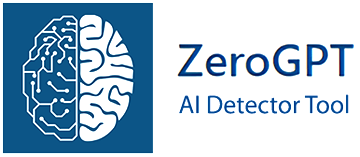PENGARUH PENGGUNAAN METODE BELAJAR BLENDED LEARNING TERHADAP MOTIVASI BELAJAR MAHASISWA DI MASA PANDEMI COVID-19
DOI:
https://doi.org/10.34012/jukep.v6i1.3383Keywords:
COVID-19, blended learning, motivation to learnAbstract
The impact of the COVID-19 pandemic that occurred in Indonesia caused the learning process in tertiary institutions to change. The learning process in tertiary institutions is required to be mastered in their respective homes. This has an impact on the learning process activities on campus which has 45.5 million students and students are one of the places prone to the spread of the COVID-19 virus. This study aims to determine the effect of using blended learning methods on student motivation in medical-surgical nursing courses during the COVID-19 pandemic. This type of research uses quantitative research with a cross-sectional design approach. The population in this study were all nursing diploma students totaling 160 people. The sample used was purposive sampling in which a sample determination technique was carried out by selecting a sample among the population according to what the researcher wanted as many as 67 people. This research was conducted in June-July 2022. Based on the results of the research conducted, it was found that there was an effect of using the blended learning method on student learning motivation in medical-surgical nursing courses during the COVID-19 pandemic with a p-value of 0.000. The use of blended learning methods can affect student learning motivation. The results of this study are expected to increase student motivation in attending lectures, especially medical-surgical nursing courses.
Downloads
Published
How to Cite
Issue
Section
License
Copyright (c) 2023 Henrianto Karolus Siregar, Elvipson Sinaga, Khairunnisa Batubara, Romauli Ervannya Goria Siallagan, Sri Wahyuni Siregar

This work is licensed under a Creative Commons Attribution 4.0 International License.
Authors who publish their manuscripts through the Journal of Keperawatan Priority agree to the following:
- Copyright to the manuscripts of scientific papers in this Journal is held by the author.
- The author surrenders the rights when first publishing the manuscript of his scientific work and simultaneously the author grants permission / license by referring to the Creative Commons Attribution 4.0 International License to other parties to distribute his scientific work while still giving credit to the author and the Journal of Journal Keperawatan Priority as the first publication medium for the work.
- Matters relating to the non-exclusivity of the distribution of the Journal that publishes the author's scientific work can be agreed separately (for example: requests to place the work in the library of an institution or publish it as a book) with the author as one of the parties to the agreement and with credit to sJournal ofJournal Keperawatan Priority as the first publication medium for the work in question.
- Authors can and are expected to publish their work online (e.g. in a Repository or on their Organization's/Institution's website) before and during the manuscript submission process, as such efforts can increase citation exchange earlier and with a wider scope.


















